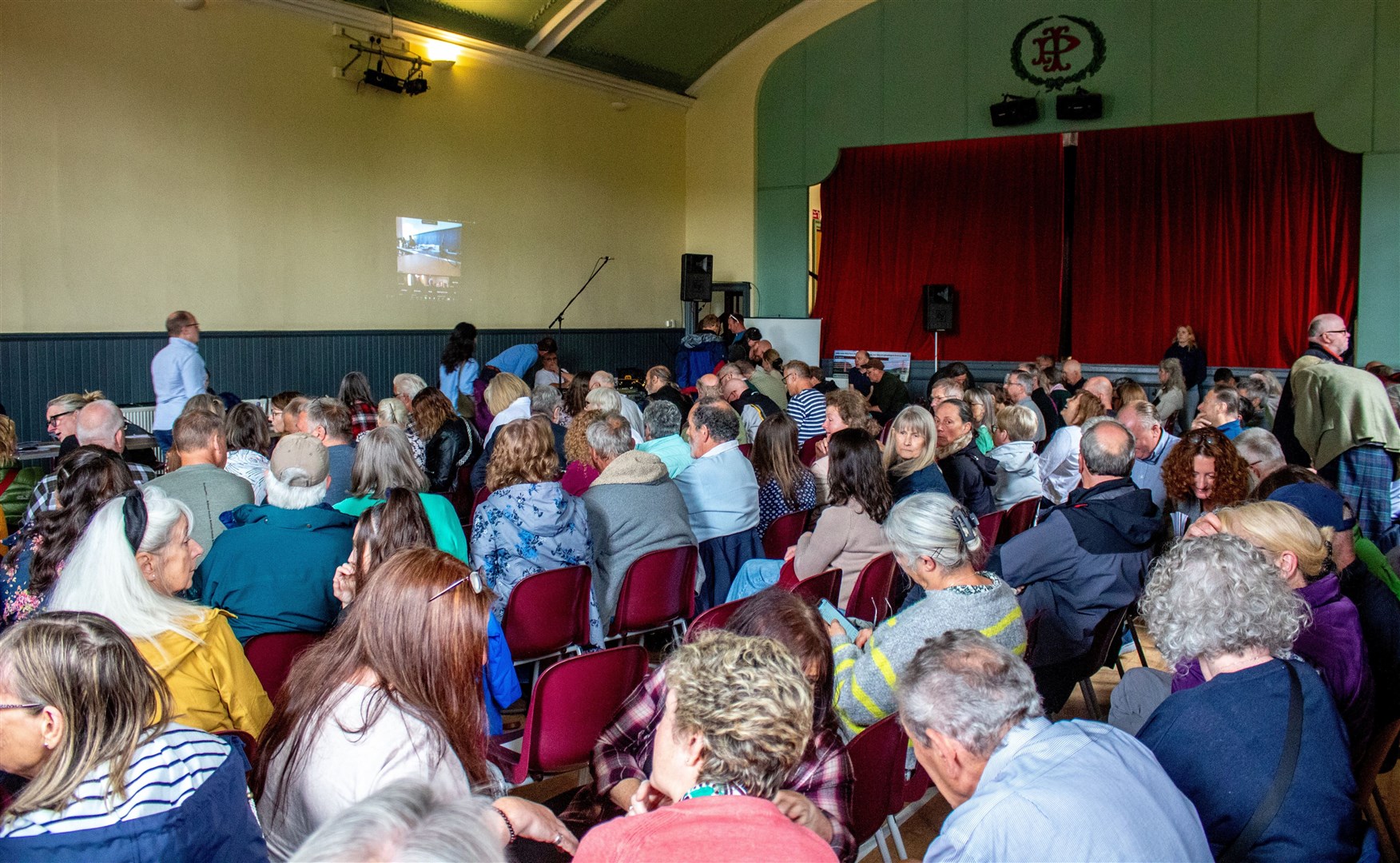Top Stories
Highlands Councils Demand Balance in Renewable Energy Decisions

Over 50 community councils from the Highlands convened in Inverness today to discuss the cumulative impact of renewable energy infrastructure, including pylons, cables, substations, and wind turbines. The meeting focused on concerns that local democracy is being undermined by centralized decision-making in Edinburgh, leaving many communities feeling powerless in influencing significant energy decisions.
Fergus Ewing, a member of the Scottish Parliament, emphasized the need for a balanced approach to electricity generation. He expressed support for renewable energy but voiced concerns over the current strategy. “There must surely be a balance to the way in which we generate our electricity,” Ewing stated, highlighting the necessity of backup systems when renewable sources are insufficient.
Challenges of Centralized Decision-Making
The convention revealed frustrations over the Scottish Government’s handling of renewable energy developments. Ewing noted that the push for net-zero carbon emissions often overshadows practical considerations, such as maintaining a reliable and safe national grid. “Instead of asking what power we actually need, the focus is singular: achieving net zero,” he remarked, pointing out that the UK contributes just one-hundredth of global carbon emissions, with Scotland contributing even less.
Many community councils reported that the rapid proliferation of renewable developments is having a minimal direct benefit to local populations. The average “community benefit” payment stands at £3,000 per megawatt per annum, far below the suggested tariff of £5,000. Ewing highlighted that this figure has not adjusted for inflation since 2012, suggesting that the equivalent today would be around £12,500.
Additionally, Ewing criticized the Scottish Government for refusing to send a Minister to the convention, citing concerns over ongoing planning applications. He argued that such a stance limits engagement with local communities and their representatives. “When in government, if you are afraid to appear before the people, you are in deep trouble,” he said, referencing the importance of open dialogue.
Community Engagement and Future Actions
During the gathering, Ewing pledged to rally political support to lobby the Scottish Energy Minister. He expressed his intent to advocate for greater collaboration between government officials and community councils to ensure that local voices are heard in energy discussions. The absence of a government representative was met with disappointment, as the situation echoed past political conflicts, including a case involving former President Donald Trump.
In a light-hearted moment, Ewing reflected on his recent participation in community events, such as the Moy Fair, where discussions on wildfire management took place. He also looked forward to the upcoming Grantown Show and Nairn Games, where he noted the cultural significance of such gatherings in rural Scotland.
As Ewing continues to advocate for a balanced approach to energy generation, he remains committed to engaging with local communities to ensure their needs and concerns are addressed. The call for a more equitable distribution of benefits from renewable energy projects reflects a broader desire for sustainable development that includes community stakeholders in the decision-making process.
-

 Entertainment3 months ago
Entertainment3 months agoAnn Ming Reflects on ITV’s ‘I Fought the Law’ Drama
-

 Entertainment4 months ago
Entertainment4 months agoKate Garraway Sells £2 Million Home Amid Financial Struggles
-

 Health3 months ago
Health3 months agoKatie Price Faces New Health Concerns After Cancer Symptoms Resurface
-

 Entertainment2 weeks ago
Entertainment2 weeks agoCoronation Street Fans React as Todd Faces Heartbreaking Choice
-

 Entertainment3 months ago
Entertainment3 months agoCoronation Street’s Carl Webster Faces Trouble with New Affairs
-

 World3 weeks ago
World3 weeks agoBailey Announces Heartbreaking Split from Rebecca After Reunion
-

 Entertainment3 months ago
Entertainment3 months agoWhere is Tinder Swindler Simon Leviev? Latest Updates Revealed
-

 Entertainment4 months ago
Entertainment4 months agoMarkiplier Addresses AI Controversy During Livestream Response
-

 Science2 months ago
Science2 months agoBrian Cox Addresses Claims of Alien Probe in 3I/ATLAS Discovery
-

 Health5 months ago
Health5 months agoCarol Vorderman Reflects on Health Scare and Family Support
-

 Entertainment4 months ago
Entertainment4 months agoKim Cattrall Posts Cryptic Message After HBO’s Sequel Cancellation
-

 Entertainment3 months ago
Entertainment3 months agoOlivia Attwood Opens Up About Fallout with Former Best Friend





















